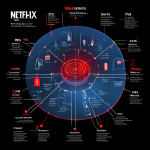
Based on reports from The Wall Street Journal, major pharmaceutical companies are shifting their focus to smaller acquisitions in 2024, with all 17 deals announced in the first half of the year valued at $5 billion or less, reflecting a changing regulatory landscape and a more selective approach to mergers and acquisitions in the industry.
Pharma’s Small Deals Trend
In a surprising twist, pharmaceutical giants are playing it small in 2024, opting for bite-sized acquisitions rather than mega-mergers. This shift towards more modest deals reflects a changing industry landscape, where regulatory hurdles and a picked-over market have made smaller, strategic purchases more appealing. The trend is evident in the first half of the year, with all 17 announced deals by major pharmaceutical companies valued at $5 billion or less. This approach allows companies to supplement their product lineups and fill gaps in their pipelines without the complexities associated with larger acquisitions.
Regulatory Challenges in 2024
The current regulatory environment poses significant challenges for pharmaceutical companies seeking large-scale acquisitions. Executives, bankers, and lawyers point to increased scrutiny and complexity in obtaining regulatory approvals for major deals. This heightened oversight has made smaller transactions more attractive, as they typically face fewer regulatory hurdles and can be completed more quickly. Additionally, the sector appears to be “picked over,” with fewer large, desirable targets available for acquisition. These factors have contributed to the industry’s shift towards smaller, more strategic purchases that can be easily integrated and offer immediate value without the regulatory headaches associated with larger mergers.
Notable 2024 Acquisitions
The pharmaceutical industry has witnessed a flurry of acquisitions in 2024, with several notable deals shaping the landscape. Johnson & Johnson made waves by acquiring Shockwave Medical for $13.1 billion, while Novo Holdings secured Catalent in a $16.5 billion transaction. Other significant purchases include:
* Vertex Pharmaceuticals’ (VRTX) $4.9 billion acquisition of Alpine Immune Sciences
* AbbVie’s (ABBV) $8.7 billion deal for Cerevel Therapeutics
* Gilead Sciences’ (GILD) $4.3 billion purchase of CymaBay Therapeutics
* Eli Lilly’s (LLY) $3.2 billion acquisition of Morphic Therapeutic
* Novartis’ (NVS) €2.7 billion ($2.9 billion) takeover of MorphoSys AG
These transactions highlight the industry’s focus on strategic, smaller-scale acquisitions to bolster product pipelines and expand therapeutic areas.
The Rise of Boutique Biotech Deals
In a surprising twist or trend, midsize pharmaceutical companies are now vying with industry giants for biotech acquisitions, creating a new dynamic in the market. This shift offers entrepreneurs and investors additional opportunities for liquidity, especially during a period of limited biotech IPOs. The trend towards smaller, more strategic deals is reshaping the landscape, with companies like Vertex Pharmaceuticals acquiring Alpine Immune Sciences for $4.9 billion and Gilead Sciences purchasing CymaBay Therapeutics for $4.3 billion. These boutique acquisitions allow firms to fill specific gaps in their product pipelines and adapt to changing market conditions without the complexities associated with larger mergers.
A Clarification From An Industry Expert…

Dr. James Helliwell, CEO of Eupraxia Pharmaceuticals (NASDAQ: EPRX)
Dr. James Helliwell, CEO of Eupraxia Pharma (EPRX), a clinical-stage biotechnology company leveraging its proprietary DiffuSphere™ technology to optimize drug delivery for applications with significant unmet need stated, “I would say that part of this move is a shift away from consolidation and rolling up in the industry and is now a shift to taking advantage of what those mega mergers have yielded. They now are focused on great products and platforms to feed into their large sales teams and captive markets. He added, “This is perfect for companies with novel therapeutics and platforms, especially those that recognize the shifting payer environment occurring the in the US where outcomes and value are both important.”

About Eupraxia Pharmaceuticals Inc.
Eupraxia is a clinical-stage biotechnology company focused on the development of locally delivered, extended-release products that have the potential to address therapeutic areas with high unmet medical need. The Company strives to provide improved patient benefit and has developed technology designed to deliver targeted, long-lasting activity with fewer side effects. DiffuSphere™, a proprietary, polymer-based micro-sphere technology, is designed to facilitate targeted drug delivery, with extended duration of effect, and offers multiple, highly tuneable pharmacokinetic (PK) profiles. This investigational technology can be engineered for use with multiple active pharmaceutical ingredients and delivery methods.
Eupraxia’s EP-104GI is currently in a Phase 1b/2a trial, the RESOLVE trial, for the treatment of EoE. EP-104GI is administered as an injection into the esophageal wall, providing local delivery of drug. This is a unique treatment approach for EoE. Eupraxia also recently completed a Phase 2b clinical trial (SPRINGBOARD) of EP-104IAR for the treatment of pain due to knee OA. The trial met its primary endpoint and three of the four secondary endpoints. In addition, Eupraxia is developing a pipeline of later and earlier-stage long-acting formulations. Potential pipeline indications include candidates for other inflammatory joint indications and oncology, each designed to improve on the activity and tolerability of currently approved drugs. For further details about Eupraxia, please visit the Company’s website at: www.eupraxiapharma.com.
Learn More…
Recently Eupraxia Pharmaceuticals’ (NASDAQ: EPRX) Chief Executive Officer, James A. Helliwell, MD, delivered a presentation titled “Exploring The Rapid Rise Of Osteoarthritis.”
-
Osteoarthritis (“OA”) is the leading cause of disability in older adults.
-
The U.S. Centers for Disease Control and Prevention estimates that knee OA affects more than 30 million people in the U.S. alon2.

























































































































































































































































































